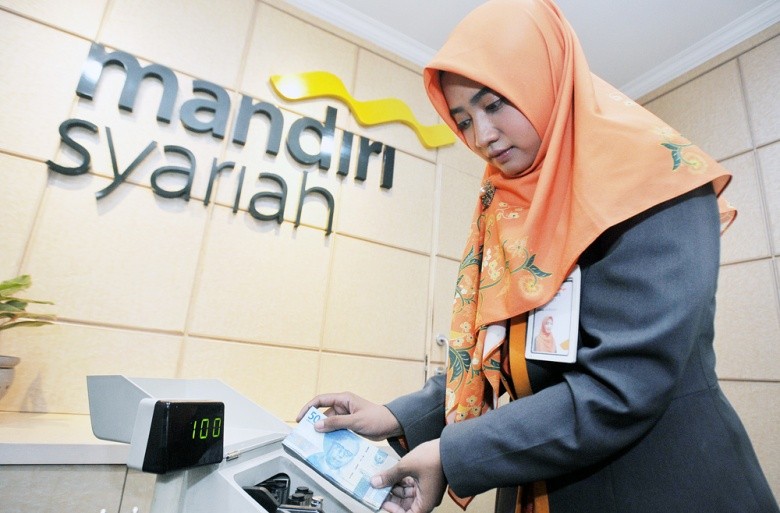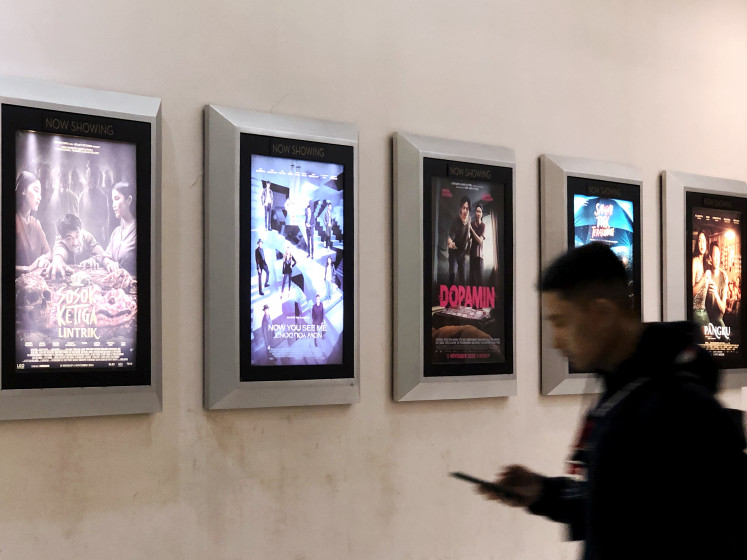Popular Reads
Top Results
Can't find what you're looking for?
View all search resultsPopular Reads
Top Results
Can't find what you're looking for?
View all search resultsSharia banks urged to diversify products, improve marketing
An Institute for Development of Economics and Finance (INDEF) economist said sharia banks needed to attract more users by diversifying products.
Change text size
Gift Premium Articles
to Anyone
E
conomists urged sharia banks to diversify and better market their products to widen the market cap of the banks, which has stagnated for years, amid the country’s aim to be a sharia finance hub.
Institute for Development of Economics and Finance (INDEF) sharia economy expert Fauziah Rizki Yuniarti said sharia banks needed to attract more users by diversifying products to level with the conventional banks. Even the halal industry had yet to use sharia banks’ products, as they deemed the products unsuitable for their needs, she added.
“People have low confidence in sharia banks’ sharia compliance. Some of their products are also not as attractive as those of the conventional banks,” she said during an online discussion on Tuesday.
“Islamic banks need to offer more relevant products with better rates and packages by understanding their consumers’ needs,” she added.
The move was essential as the government, along with sharia banks, needed to crack the industry’s 5 percent trap, referring to sharia banks’ market share that has remained around 5 to 6 percent for at least five years, she went on to say.
Despite Indonesia being the largest Muslim-majority country, consumers’ awareness of Islamic banking and finance has been lacking. According to the Financial Services Authority (OJK), Indonesia’s sharia financial literacy rate was a mere 8.93 percent in 2019, far below the general financial literacy rate of 37.72 percent.
Read also: Explainer: What’s sharia banking and where’s Indonesia taking it?
Fauziah suggested that stakeholders encourage the use of sharia banking products with the help of Islamic religious leaders and public figures, such as influencers.
Vice President Ma’ruf Amin is among the top officials and religious figures who have spoken about the potential of sharia finance over the years, calling it “a new wave for Indonesia’s economy.”
In a Jakpost Up Close webinar last year, the vice president cited a Boston Consulting Group (BCG) estimate that there were 64.5 million middle-class Muslims in Indonesia in 2020, which presented a huge opportunity for sharia finance, as they would need to have options of halal products and sharia-compliant financial services to fit their lifestyles and principles.
Read also: Sharia economy to become ‘new wave’ of Indonesia’s economy: VP
Fauziah stated that sharia banks should go beyond religiosity and highlight the banks’ social impact and ethical practices to attract rational, non-Muslims and nonreligious consumers.
“For a quick win amid the pandemic, sharia banks should promote their profit-and-loss sharing products, such as financing more small and medium enterprises [SMEs],” she added.
Sharia banks run under a profit-sharing system rather than one based on interest. For financing, a bank and its customer could either have a mudharabah contract, wherein the bank provides the entire capital and might even take all the potential losses, or a musyarakah contract, wherein the capital is split and the profit and losses are also shared as agreed.
Tika Arundina, who heads the Islamic finance program at the University of Indonesia’s Economic and Business School, echoed Fauziah’s statement, adding that sharia banks should explore the sharia-restricted intermediary account (SRIA).
SRIA is a profit-and-risk-sharing investment instrument with mudharabah and muqayyadah contracts, which means investors can select sectors to fund based on their risk level and desired returns.
Indonesia has also recently launched Bank Syariah Indonesia (BSI), the country’s largest sharia bank. BSI is a product of merging three sharia units of state-owned banks. The merger made BSI the seventh-largest bank in the country by total assets. According to the bank’s director, Hery Gunardi, BSI’s total assets stood at Rp 240 trillion (US$17.1 billion) in December. Meanwhile, its total financing was Rp 157 trillion and its third-party funds stood at Rp 210 trillion.
Tika went on to say that, with its large assets, BSI could now tap into top-tier markets, wholesalers and big corporations. Big-ticket consumers would also need wealth management, and that could be an additional service provided by sharia banks, she added.
“This merger is not the end of the line; in fact, it is the start for BSI to gain more assets. I believe a second public offering will make them a bank of the category BUKU IV by 2022 or 2023,” she said, referring to banks with core capital exceeding Rp 30 trillion.
According to the 2020 Islamic Financial Service Industry Stability report, Indonesian sharia banks only accounted for 2 percent of the global Islamic banking market share by assets in the third quarter of 2019, falling behind Iran (29 percent), Saudi Arabia (25 percent), Malaysia (11 percent) and others.
Similarly, INDEF senior economist Iman Sugema said BSI could still seize the opportunity to grow despite the challenges, as Indonesia could leverage the current economic downturn due to COVID-19 to propel the sharia banking industry.
“The pandemic effect on Indonesia’s economy is relatively mild, this is a good positioning for the country’s banking to take off, grow stronger and have a global presence once the pandemic is over,” he said.










